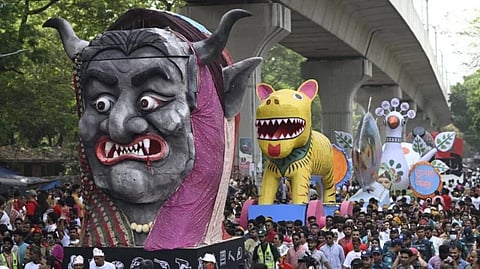

The trial of Bangladesh’s former Prime Minister Sheikh Hasina began Sunday, with prosecutors accusing the ousted leader of crimes against humanity for her alleged role in a violent crackdown on protesters last year.
Hasina, who fled to India following a nationwide uprising that ended her 15-year rule, is being tried in absentia by Bangladesh’s International Crimes Tribunal (ICT). The prosecution alleges she orchestrated a "coordinated, widespread, and systematic attack" on demonstrators, deploying law enforcement and armed supporters to suppress dissent.
Chief prosecutor Mohammad Tajul Islam outlined five charges against Hasina, including "abetment, incitement, complicity, facilitation, conspiracy, and failure to prevent mass murder" during the July 2024 uprising.
"The accused unleashed all law enforcement agencies and her armed party members to crush the uprising," Islam told the court. Prosecutors specifically linked Hasina to the killing of student protester Abu Sayeed, the first confirmed death in the unrest.
The United Nations estimates nearly 1,400 people were killed between July and August 2024 as security forces and ruling party loyalists violently suppressed protests. Hasina, now 77, denies the allegations, calling them politically motivated.
Also facing trial are former Interior Minister Asaduzzaman Khan Kamal, who remains at large, and ex-police chief Chowdhury Abdullah Al Mamun, currently in custody.
The ICT was originally established by Hasina in 2009 to prosecute crimes committed during Bangladesh’s 1971 war of independence. However, critics allege she later weaponized the court to eliminate political opponents, with several high-profile rivals receiving death sentences.
Bangladesh has formally requested India extradite Hasina, but she has refused to return. Her party, the Awami League, has been banned pending the trial’s outcome.
Prosecutors say they have compiled video evidence, audio recordings, and witness testimonies to support their case. The court is expected to issue formal charges soon, with the next hearing set for June 16.
Interim authorities have pledged elections by mid-2026, as rival political factions vie for influence in the wake of Hasina’s downfall.